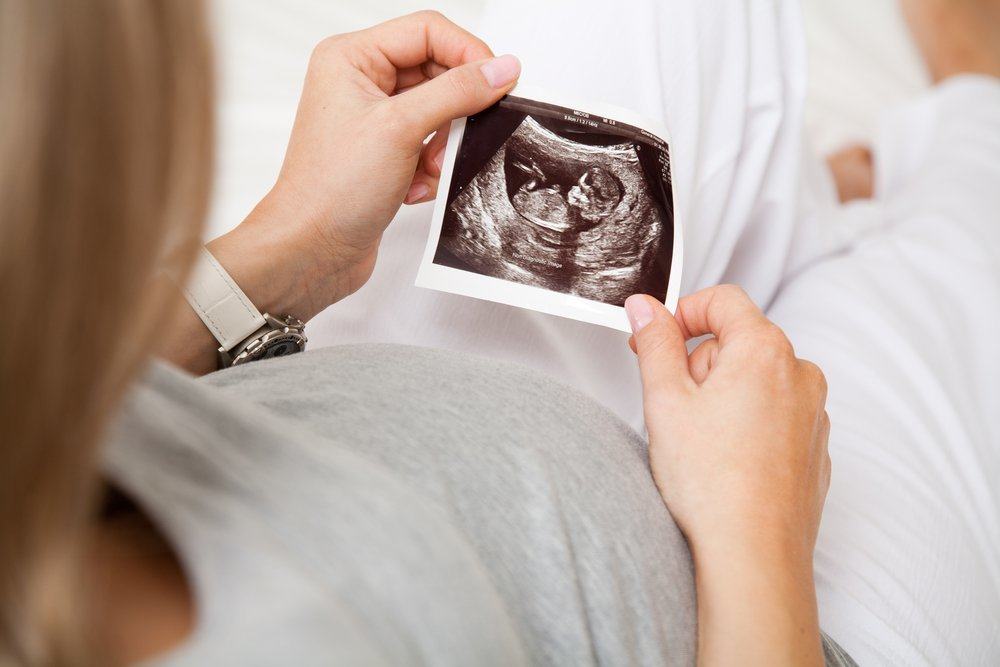Contents:
- Medical Video: Amniocentesis (Amniotic Fluid Test)
- What are the characteristics of normal amniotic fluid?
- How can the amniotic fluid become damaged?
- What causes mekonium in the amniotic fluid?
- What if the baby breathes meconium?
- How does the baby breathe meconium?
- What should be done if the baby breathes meconium in amniotic fluid?
Medical Video: Amniocentesis (Amniotic Fluid Test)
One of the protective babies in the womb is amniotic water. It is this amniotic fluid that keeps the baby from infection, warms the baby in the womb, supports the development of the lungs, digestive system, bones and muscles of the baby, and can make the baby move freely in the womb. All functions of this amniotic water can be beneficial for babies if the amniotic water is normal, but if the amniotic fluid is damaged, it can interfere with the development and health of the womb.
What are the characteristics of normal amniotic fluid?
Normal amniotic fluid usually has the following characteristics:
- Clear or slightly yellowish liquid, has white patches, and / or there is mucus or blood
- Odorless
- Feels warm
While the damaged amniotic fluid is usually cloudy and green or brownish in color.
How can the amniotic fluid become damaged?
Many factors can cause damage to the amniotic fluid, such as an infection, the baby is too long in the womb (gestational age has exceeded 40 weeks), or a problem in the baby. Amniotic fluid that is already green or brownish is usually caused by meconium, which is the baby's first stool. Usually, the baby issues its first stool after birth. However, in this case, the baby has issued his first stool first, while still in the womb.
What causes mekonium in the amniotic fluid?
Meconium can be released by the baby while still in the womb when the baby is stressed. When the baby is stressed, there is an increase in the baby's intestinal activity and relaxation of the anal sphincter muscle (the muscle valve that controls feces out of the anus). This causes the baby's first stool to come out into the amniotic fluid.
Stress can happen to babies because babies don't get a blood supply that contains enough nutrients and oxygen. This can be caused by problems with the placenta or umbilical cord.
Stress can also be caused by:
- Infection
- Old placenta, if the gestational age is very far from the date the baby should be born
- Difficulties in childbirth or childbirth go on for a long time
- Gestational diabetes
- High blood pressure in pregnant women
What if the baby breathes meconium?
Meconium that enters the baby's lungs through amniotic fluid can cause serious respiratory problems called meconium aspiration syndrome, especially if the meconium in amniotic fluid is very thick. This meconium aspiration syndrome can occur before, during, and after birth when the baby breathes amniotic water mixed with meconium.
Meconium can be partially or completely inhaled into the baby's lungs while still in the womb or during childbirth. This causes mekonium to clog the baby's respiratory tract. As a result, there is swelling in the baby's respiratory tract which causes the baby to breathe. The more meconium inhaled by the baby, the more severe the baby's condition.
How does the baby breathe meconium?
Some babies may not breathe meconium in amniotic water during the birth process, so they are not troubled. However, babies who breathe meconium during the womb or at birth will show some symptoms, such as:
- There is meconium or dark green stains in amniotic fluid
- Baby's skin color becomes bluish (cyanosis)
- Babies try harder to breathe, such as making loud noises while breathing, snorting, using additional muscles while breathing, difficulty breathing, or breathing faster
- Baby's heart rate decreases while still in the womb
- Babies look weak at birth
- Signs of a baby are late to be born, such as long baby nails
What should be done if the baby breathes meconium in amniotic fluid?
If your amniotic fluid breaks and releases a green liquid, immediately tell your doctor. When you check your gynecology, your doctor will always monitor the baby's heart rate to determine the state of the baby in the womb, including whether or not the baby breathes meconium. If the baby has inhaled meconium in the womb, the baby's heart rate will weaken.
If you see signs of meconium in the amniotic fluid, your doctor may recommend amniosinfusion to reduce the viscosity of meconium in amniotic water before the baby breathes it at birth. Meanwhile, if the baby has inhaled meconium in amniotic fluid, the baby may need special care after birth. This depends on how much meconium the baby breathes and how bad the baby is.
If the newborn is still active and looks good, the doctor will monitor the baby further. If a newborn is inactive and has a low heart rate, the doctor may clean the baby's airway from meconium. Some babies with meconium aspiration syndrome will improve their condition in a few days or weeks after birth, depending on the severity of the baby's condition.
READ ALSO
- What Causes Yellow Disease in Newborns?
- What causes rupture of membranes before the time?
- What to Look For When Drying a Newborn Baby












